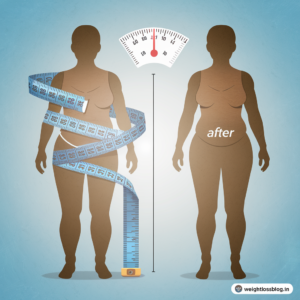The Essential Do’s and Don’ts of Intermittent Fasting for Weight Loss
Introduction
Intermittent fasting (IF) is a highly effective and increasingly popular weight loss strategy. By focusing on when you eat rather than what you eat, intermittent fasting helps reduce overall calorie intake, boost metabolism, and improve fat burning. However, to achieve optimal results, it’s essential to follow certain guidelines and avoid common pitfalls. Whether you’re just starting out with a 16/8 fasting schedule or exploring other fasting methods, this guide will provide you with the do’s and don’ts to make the most of your intermittent fasting journey.
Do’s of Intermittent Fasting
1. Do  Start Slowly
Start Slowly
If you’re new to intermittent fasting, it’s important to start gradually. Begin with a shorter fasting window, such as 12 or 14 hours, and work your way up to longer fasts like 16/8. This allows your body to adjust to the new eating schedule without causing unnecessary stress or extreme hunger. Gradually increasing your fasting window will help you succeed in the long run and make the transition to fasting much smoother.
Starting slowly also gives your body time to adapt to the new eating pattern and helps reduce the risk of side effects like headaches, fatigue, or irritability.
2. Do Stay Hydrated
Hydration is critical when practicing intermittent fasting. Since you’re not consuming calories during your fasting window, it’s essential to drink plenty of water, herbal teas, or black coffee to stay hydrated. Hydration supports metabolism, keeps hunger at bay, and ensures your body functions optimally during fasting periods.
Drinking water not only helps prevent dehydration but also makes fasting easier by reducing feelings of hunger. Aim to drink at least 8-10 glasses of water daily, especially during longer fasting windows.
3. Do Focus on Nutrient-Dense Meals
When you break your fast, it’s important to prioritize nutrient-dense, whole foods that provide essential vitamins, minerals, and macronutrients. Opt for balanced meals that include lean proteins, healthy fats, and plenty of fruits and vegetables. This ensures that you get the necessary nutrients while maintaining energy levels and avoiding blood sugar spikes.
By focusing on nutrient-rich meals, you’ll feel more satisfied and prevent overeating during your eating window. Avoid processed or sugary foods, as they can cause energy crashes and undermine the benefits of intermittent fasting.
4. Do Stick to a Regular Fasting Schedule
Consistency is key to success with intermittent fasting. Stick to a regular fasting and eating schedule, whether it’s the 16/8 fasting method, 14/10, or another variation that works for you. Having a consistent routine helps your body adapt to the fasting periods, reduces hunger, and improves overall metabolic flexibility.
By sticking to a schedule, you can also better manage your hunger and avoid overeating during your eating window. This helps you achieve sustainable weight loss results over time.
5. Do Listen to Your Body
One of the most important aspects of intermittent fasting is listening to your body’s signals. If you feel overly fatigued, lightheaded, or irritable, it  may be a sign that your fasting window is too long or that you need to adjust your eating habits. Don’t ignore these signals—adjust your fasting schedule or meal plan to ensure you’re nourishing your body properly.
may be a sign that your fasting window is too long or that you need to adjust your eating habits. Don’t ignore these signals—adjust your fasting schedule or meal plan to ensure you’re nourishing your body properly.
Pay attention to hunger cues, energy levels, and mood, and make adjustments as needed. Intermittent fasting should enhance your health, not deplete your energy or negatively impact your well-being.
6. Do Incorporate Physical Activity
Regular physical activity complements intermittent fasting and can help accelerate weight loss. Engaging in moderate exercise like walking, yoga, or strength training during your fasting period can boost fat burning and improve metabolic health. However, be mindful of your energy levels and adjust the intensity of your workouts if needed.
Exercising during fasting periods can enhance fat burning because your body relies on stored fat for energy. Just be sure to listen to your body and avoid overexerting yourself during fasted workouts.
7. Do Break Your Fast with Balanced Meals
When breaking your fast, opt for a balanced meal that includes a mix of lean protein, healthy fats, and fiber-rich carbohydrates. This will help stabilize your blood sugar levels, keep you full, and prevent overeating later in the day. Some great options for breaking a fast include a salad with grilled chicken, avocado, and olive oil, or scrambled eggs with spinach and whole-grain toast.
Avoid sugary or processed foods when breaking your fast, as they can cause rapid blood sugar spikes and lead to energy crashes or cravings.
Don’ts of Intermittent Fasting
1. Don’t Overeat During Your Eating Window
One of the biggest mistakes people make with intermittent fasting is overeating during their eating window. While it’s normal to feel hungry after fasting, eating too much or indulging  in unhealthy foods can negate the benefits of fasting. Focus on eating balanced, nutrient-dense meals and avoid the temptation to overeat, even if your fasting period was long.
in unhealthy foods can negate the benefits of fasting. Focus on eating balanced, nutrient-dense meals and avoid the temptation to overeat, even if your fasting period was long.
Overeating during your eating window can slow down your weight loss progress and lead to feelings of sluggishness and discomfort. Keep portions reasonable and stick to whole foods to maintain your calorie goals.
2. Don’t Ignore Hunger or Fatigue
Fasting can sometimes lead to hunger, fatigue, or irritability, especially when you’re first starting. It’s important not to ignore these signals from your body. If you feel weak, dizzy, or excessively tired, it may be a sign that your fasting window is too long or that you’re not eating enough during your eating window.
Always listen to your body and adjust your fasting window or meal plan as needed to ensure you’re getting enough nutrients to stay energized and healthy.
3. Don’t Break Your Fast with Sugary Foods
After fasting, your body is more sensitive to insulin, so it’s crucial not to break your fast with sugary or processed foods. Doing so can cause blood sugar spikes and crashes, leading to cravings and overeating later in the day. Instead, choose whole foods like vegetables, lean proteins, and healthy fats to break your fast and keep your blood sugar stable.
Foods rich in fiber and protein will help you feel full and provide sustained energy throughout the day, supporting your weight loss efforts.
4. Don’t Skip Hydration During Fasting
It’s easy to forget about hydration while fasting, but staying hydrated is essential for preventing headaches, fatigue, and hunger. Make sure to drink plenty of water throughout your fasting period, and consider adding herbal teas or black coffee to help curb hunger and keep you focused.
Dehydration can make fasting more difficult and can lead to unwanted side effects, so make hydration a priority every day.
5. Don’t Fast Every Day (If Not Necessary)
While daily intermittent fasting works well for many people, it’s not necessary to fast every single day, especially if it feels unsustainable. Methods like the 5:2 diet or alternate-day fasting allow for flexibility and can still offer weight loss benefits. Choose a fasting schedule that fits your lifestyle and preferences without feeling overly restrictive.
Fasting should fit into your life without becoming a burden, so find a balance that works for you and your goals.
6. Don’t Expect Immediate Results
While intermittent fasting is effective for weight loss, it’s important to manage your expectations and be patient. Weight loss takes time, and results may not be immediate. Focus on consistency with your fasting schedule and eating habits, and trust the process. Over time, you’ll notice improvements in weight loss, energy levels, and overall health.
Remember, sustainable weight loss is a gradual process, and intermittent fasting is meant to support long-term health rather than offer a quick fix.
7. Don’t Rely on Processed or Junk Foods
Just because intermittent fasting doesn’t dictate what you eat doesn’t mean you should fill your eating window with processed or junk foods. Foods high in sugar, unhealthy fats, and empty calories can sabotage your weight loss efforts and negatively impact your health. Focus on whole, unprocessed foods like lean proteins, healthy fats, fruits, and vegetables to nourish your body and support your weight loss goals.
Eating nutrient-rich foods will help you feel fuller for longer and provide the energy you need to stay active and healthy throughout the day.
Conclusion
By following these essential do’s and don’ts, you can maximize the benefits of intermittent fasting for weight loss while maintaining good health. Intermittent fasting offers a flexible and sustainable approach to eating that promotes fat burning, better metabolic health, and long-term weight management.
Remember to stay consistent, listen to your body, and prioritize whole, nutrient-dense foods to support your weight loss goals. With patience and dedication, intermittent fasting can become a powerful tool for achieving and maintaining a healthy weight.